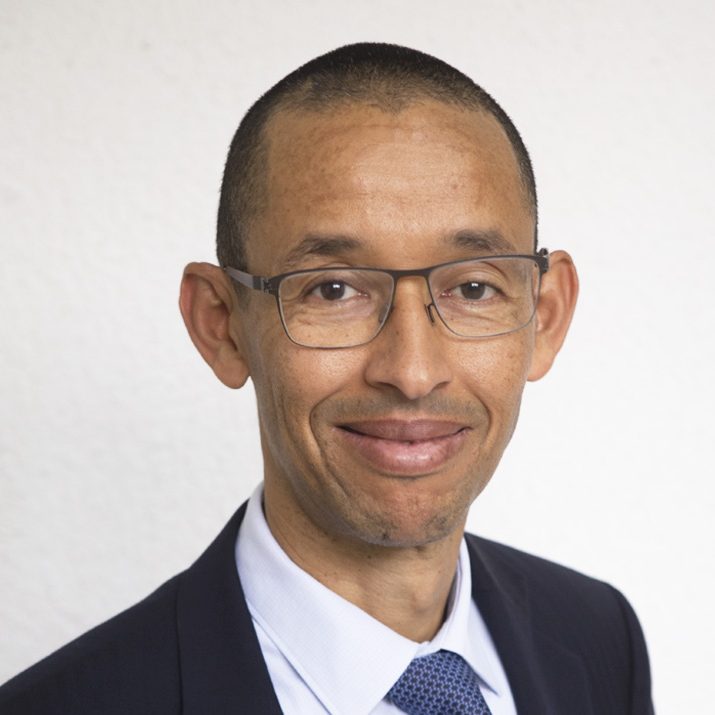There is a growing interest in the sustainable city and smart city approaches among local and national authorities on the African continent. The Smart Africa Alliance, which brings together 27 African countries wishing to promote digital development on the continent, has made smart cities one of its priority areas of work.
However, initiatives that place digital technology at the heart of the transformation of African cities are not only the responsibility of public authorities. Many private actors are relying on digital technology to offer solutions to the growing urban challenges in Africa.
Among these actors, start-ups are particularly dynamic and creative, as well as urban planners, service operators and investors. In total, the Do4africa platform lists just over one hundred and fifty projects on the continent that provide digital solutions to urban challenges.
These projects are carried out by local or national authorities, by start-ups, large private companies, SMEs or sometimes directly by the civil society. They may target a particular city or be adapted and replicated across the continent.
There is no standard model for a smart city or sustainable city in Africa
Building Smart Cities should not consist in implementing preconceived models on any territory, but in developing an inclusive and collaborative approach based on digital technologies that values the cultural, economic, and
geographical specificities of each region.
An analysis of the projects identified on the Do4africa platform reveals three major trends on the African continent.
Firstly, to meet the environmental and social challenges linked to the rapid urban growth of the continent, some authorities are favouring the construction of new cities.
In this case, digital infrastructures and services are integrated from the design phase of these planned cities to avoid the shortcomings seen in many of the continent's metropolises. However, these ambitious and innovative projects carry the risk of being disconnected from the reality of the cities and failing to attract the population needed to become true urban spaces.
Other projects are aimed at injecting a digital component into a well-defined urban service, for example in transport, energy, or waste management. These projects are not intended to provide a holistic response to all the challenges that a city may face, but to provide a solution to a sectoral problem. Among the initiatives referenced on the Do4africa platform, beyond the diversity of the sectors impacted, there is often a desire to respond to one of the primary characteristics of African cities: informality.
Finally, a third category of projects aims at gradually transforming already old cities into Smart Cities by proposing multi-sectoral plans.
What ambitions for greenfield Smart Cities ?
Several African countries have plans for new cities in which digital technology plays a major role. In Senegal, the city of Diamniadio is being built 40 kilometres from Dakar.
The capital of Senegal, located on the Cape Verde peninsula, is so congested that it has become, in terms of air quality, the second most polluted city in the world according to the World Health Organization. By creating a city a few dozens of kilometres from the capital, the Senegalese authorities wish to offer a competing urban centre and thus redirect some of the urban flows.
To achieve this target, the Senegalese authorities plan to relocate several ministries to the new city and to create a dynamic economic ecosystem thanks to companies from the digital sector. However, to attract these companies, the new city must be sufficiently equipped with digital infrastructures. Diamniadio's Digital Technology Park (PTN), of which the datacenter is one of the most prominent elements, will eventually meet this need.
Diamniadio's two main objectives - boosting the national digital sector and reducing congestion in existing cities - can be found in other various smart city projects in Africa. This is the first objective of Sèmè City, a 100-hectare campus-city under construction in Benin, on the border with Nigeria.
Based on a triple combination of training, research and entrepreneurship, the city should enable the emergence of new models of inclusive and sustainable growth based on "Innovation Made In Africa". In Egypt, the aim is to relieve the congestion in Cairo, which has a population of nearly 23 million, by building a new administrative capital 45 kilometres from the current capital. The ambition is to create a city that is both smart and green in the middle of the desert.
However, while Smart Cities projects built from scratch are a landmark in the collective mind, they are still rare and most of the projects we have identified seek to transform existing urban spaces.
Digital technology as a response to informality in African cities
Informality in African cities is multidimensional. First, there is informal urbanization, which refers to a process of urban sprawl without any form of planning.
This results in the emergence of neighbourhoods that do not have the necessary infrastructure for urban life. These neighbourhoods are not served or underserved by the various networks - water, transport, energy - that supply the city. Moreover, they are often largely unknown to local authorities, which have little cartographic data on them.
Informality also refers to all the economic activities carried out by businesses that are not registered with the authorities. Trade and public transport are two sectors where informality is preponderant. For both, digital technology offers different tools and services to address the particular challenges generated by informality.
The obsolescence of cadastres in Africa, which goes hand in hand with informal urbanization, is often the breeding ground for conflict between different people who consider themselves legitimate owners or tenants of the same land.
In Ghana, the startup BenBen, created in 2014, offers a digital solution to strengthen land security. It relies on blockchain to guarantee the a and traceability of the information contained on its digital land information platform. Informal urbanisation often results in a lack of connection to urban networks. Several startups are proposing devices to fill this gap.
In South Africa, the iShack project aims to provide off-grid solar electricity to people living in informal settlements. Each customer receives individual solar equipment that produces enough energy to light and charge equipment such as smartphones or radios.
Digital technology also allows new forms of payment for essential urban services. In Niger, The French startup CityTaps offers a solution that meets the needs of both water operators and subscribers. Thanks to a smart water meter and mobile payment, subscribers can prepay for water distributed by the official city water operator, rather than using alternative sources that are often more expensive and of lower quality. For the water operator, this system optimizes its working capital and provides the necessary funding to invest in infrastructure to cover new neighbourhoods.
In African cities, informal economy also plays a major role in public transport. While the official public transport companies, supported by public authorities, struggle to cover cities, a multitude of informal actors respond to the needs of city dwellers.
In Kenya, it is the Matatus, private minibuses, that are most used by the population. Although customers acquire a fairly accurate knowledge of the routes they usually take over time, there is no network plan that centralizes the routes proposed by all the operators.
To fill this information gap, the Digital Matatus programme, a collaboration between MIT and the Universities of Nairobi and Columbia, aims to map the informal transport network to facilitate its use. Digital Matatus relies on contributions from minibus users, in a crowdsourcing approach, to collect transport data. From their smartphone, users can geolocate the transport lines they use and record the minibus timetables. Digital tools thus enable public authorities to gain a better understanding of informal economic activities.
In the commercial sector, this can enable authorities to improve tax collection, which is essential for municipalities to finance urban projects.
Supporting urban digital transformation
The Do4africa platform also identifies approaches taken by public authorities across the continent to accelerate the holistic digital transformation of already old cities. Examples include the Smart Ndar City project, which aims to transform Saint Louis in Senegal, or the Algiers Smart City project, which aims to make the Algerian capital a smart city.
These projects are characterised by their willingness to take advantage of all the strengths of the cities, whether from the private or public sector. Thus, the Smart Ndar City project relies on the expertise of the Centre of Excellence in Mathematics, Computer Science and ICT (CEA-MITIC) hosted by the Gaston Berger University of Saint Louis. This consortium brings together universities, research institutions and companies in the ICT sector.
The particularity of Smart Ndar City is that it is a component of a broader strategy Saint-Louis Numérique 2025 which covers the three departments of the administrative region of Saint Louis. The project has therefore been designed to articulate the issues of the city of Saint Louis with those of the rural areas and secondary towns that make up the region.
In Algeria, the Wilaya of Algiers launched in 2017 a call for collaboration aimed at the private sector to achieve its ambition to transform the city thanks to data. Multisectoral, the call was addressed to all actors in the Smart City value chain (startups, large groups, consulting firms, solution providers ...). Sustainable cities and the major transformation projects they generate can thus provide opportunities for local or continental innovation ecosystems.
Conclusion
To conclude this article, some recommendations can be drawn from the observation of urban and digital initiatives that are being implemented on the African continent. Even if the dynamism of African startups and their potential for innovation are no longer to be demonstrated, there is still a need for public authorities to establish a framework for planning the digital transformation of urban spaces. This requires the development of master plans at the level of metropolises, regions or countries.
In these masterplans, particular attention must be paid to the interdependence between the city and the rural areas surrounding it. While a cross-cutting approach is often praised, it is observed in the field that it is better to first concentrate to a few vertical business lines when drawing up a Smart City master plan.
This makes it easier to mobilise human and financial resources. Finally, the question of infrastructures should not be neglected, because without them digital solutions cannot exist. It is therefore necessary to integrate digital infrastructures from the very beginning of development projects. It is not a question of limiting oneself to simple networks, but also of thinking about data storage to avoid depending on foreign datacenters.
These digital infrastructures are not an end, but they are the foundation on which a set of digital responses to African urban issues can be built.



